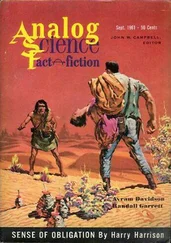M Harrison - Viriconium
Здесь есть возможность читать онлайн «M Harrison - Viriconium» весь текст электронной книги совершенно бесплатно (целиком полную версию без сокращений). В некоторых случаях можно слушать аудио, скачать через торрент в формате fb2 и присутствует краткое содержание. Жанр: Фэнтези, на английском языке. Описание произведения, (предисловие) а так же отзывы посетителей доступны на портале библиотеки ЛибКат.
- Название:Viriconium
- Автор:
- Жанр:
- Год:неизвестен
- ISBN:нет данных
- Рейтинг книги:3 / 5. Голосов: 1
-
Избранное:Добавить в избранное
- Отзывы:
-
Ваша оценка:
- 60
- 1
- 2
- 3
- 4
- 5
Viriconium: краткое содержание, описание и аннотация
Предлагаем к чтению аннотацию, описание, краткое содержание или предисловие (зависит от того, что написал сам автор книги «Viriconium»). Если вы не нашли необходимую информацию о книге — напишите в комментариях, мы постараемся отыскать её.
Viriconium — читать онлайн бесплатно полную книгу (весь текст) целиком
Ниже представлен текст книги, разбитый по страницам. Система сохранения места последней прочитанной страницы, позволяет с удобством читать онлайн бесплатно книгу «Viriconium», без необходимости каждый раз заново искать на чём Вы остановились. Поставьте закладку, и сможете в любой момент перейти на страницу, на которой закончили чтение.
Интервал:
Закладка:
He shook his head.
“Which cafe was that?” I asked him. “Do you know where it is?”
“It would not work for you, any more than it did for him, though for different reasons,” Mr. Ambrayses assured me. “Anyway, it is known only by the description I have given.”
He said this as if it was remote, on no map. But a cafe is only a cafe.
“I think I recognise it. In the steam behind the counter is a photo of an old comedian. Two men with walking sticks and white hair smile feebly at a round-shouldered waitress!”
“It would not work for you.”
“That man’s name is Dr. Petromax.”
Mr. Ambrayses loved to preface his statements like this. It was a grammatical device which allowed him to penetrate appearances.
“That boy,” he would say, “knows two incontrovertible facts about the world; he will reveal them to no one.”
Or:
“That woman, though she seems young, dreams at night of the wharfs of the Yser Canal. By day she wears beneath her clothes a garment of her own design to remind her of the people there, and their yellow lamps reflected with such distinctness in the surface of the water.”
On a steep bank near my house was a domestic apple tree which had long ago peacefully reverted amid the oaks and elder. When I first drew his attention to it Mr. Ambrayses said, “That tree has no name in botany. It has not flowered for ten years.” The next autumn, when the warm light slanted down through the drifting willow-herb silk, hundreds of small hard reddish fruits fell from it into the bracken; in spring it bore so much blossom my neighbours called it “the white tree.”
“It bears no flowers in Viriconium,” said Mr. Ambrayses. “There, it stands in a courtyard off the Plaza of Realised Time, like the perfect replica of a tree. If you look back through the archway you see clean wide pavements, little shops, white-painted tubs of geraniums in the sunlight.”
“That man’s name is Dr. Petromax.”
Rilke describes a man for whom in a moment more, everything will have lost its meaning, and that table and the cup, and the chair to which he clings, all the near and commonplace things around him, will have become unintelligible, strange and burdensome, and who nevertheless only sits and waits passively for the disaster to be complete. To an extent, I suppose, this happens to us all. But there was about Dr. Petromax that vagueness which suggested not just injury but surrender, a psychic soreness about the eyes, a whiteness about the mouth, as if he was seeing the moment over and over again and could not forget it no matter how he webbed himself in with the aboriginal woman in the yellow coat. He did no work. He went constantly from cafe to cafe in Huddersfield; I had no means of knowing why, although I suspected-quite wrongly-at the time that he had forgotten which lavatory the mirror was in, and was patiently searching for it again.
I followed him when I could, despite Mr. Ambrayses’s veto; and this is what he told me one afternoon in the Four Cousins Grill amp; Coffee Lounge:
“When I was a child my grandmother often took me about with her. I was a quiet boy already in poor health, and she found me at least as easy to manage as a small dog. Her habits were fixed: each Wednesday she visited the hairdresser and then went on to Manchester by train for a day’s shopping. She wore for this a hat made entirely out of pale pink, almost cream feathers, dotted among which were peacock eyes a startling brown-red. The feathers lay very dense and close, as if they were still on the breast of the bird.
“She loved cafes, I think because the life that goes on in them, though domestic and comfortable, can’t claim you in any way: there is nothing for you to join in. ‘I like my tea in peace,’ she told me every week. ‘Once in a while I like to have my tea in peace.’
“Whatever she ate she coughed and choked demurely over it, and for some time afterwards; and she always kept on her light green raincoat with its nacreous, gold-edged buttons.
“When I remember Piccadilly it isn’t so much by the flocks of starlings which invaded the gardens at the end of every short winter afternoon, filling the paths with their thick mouldy smell and sending up a loud mechanical shrieking which drowned out the traffic, as by the clatter of pots, the smell of marzipan or a match just struck, wet woollen coats hung over one another in a corner, voices reduced in the damp warm air to an intimate buzz out of which you could just pick a woman at another table saying, ‘Anyway, as long as you can get about,’ to which her friend answered immediately,
“ ‘Oh, it’s something, isn’t it? Yes.’
“On a rainy afternoon in November it made you feel only half awake. A waitress brought us the ashtray. She put it down in front of me. ‘It’s always the gentleman who smokes,’ she said. I looked at my grandmother sulkily, wondering where we would have to go next. At Boots she had found the top floor changed round again, suddenly full of oven gloves, clocks, infrared grills; and a strong smell of burning plastic had upset her in the arcades between Deansgate and Market Street.
“Along the whole length of the room we were in ran a tinted window, through which you could see the gardens in the gathering twilight, paths glazed with drizzle giving back the last bit of light in the sky, the benches and empty flower beds grey and equivocal-looking, the sodium lamps coming on by the railings. Superimposed, on the inside of the glass, was the distant reflection of the cafe: it was as if someone had dragged all the chairs and tables out into the gardens, where the serving women waited behind a stainless-steel counter, wiping their faces with a characteristic gesture in the steam from the bain marie, unaware of the wet grass, the puddles, the blackened but energetic pigeons bobbing round their feet.
“As soon as I had made this discovery a kind of tranquillity came over me. My grandmother seemed to recede, speaking in charged hypnotic murmurs. The rattle of cutlery and metal trays reached me only from a great distance as I watched people come into the gardens laughing. They were able to pass without difficulty through the iron railings; the wind and rain had no effect on them. They rubbed their hands and sat down to eat squares of dry Battenburg cake and exclaim ‘Mm’ how good it was. There they sat, out in the cold, smiling at one another: they certainly were a lot more cheerful out there. A man on his own had a letter which he opened and read.
“ ‘Dear Arthur,’ it began.
“He chuckled and nodded, tapping a line here and there with his finger as if he was showing the letter to someone else, while the waitresses went to and fro around him, for the most part girls with white legs and flat shoes, some of whom buttoned the top of their dark blue overalls lower than others. They carried trays with a thoughtless confidence, and spoke among themselves in a language I longed to understand, full of ellipses, hints, and abrupt changes of subject, in which the concrete things were items and prices. I wanted to go and join them. Their lives, I imagined, like the lives of everyone in the gardens, were identical to their way of walking between the tables-a neat, safe, confident movement without a trace of uncertainty, through a medium less restrictive than the one I was forced to inhabit.
“ ‘Yes, love’ I would say to introduce myself. ‘Thank you, love. Anything else, love? Twenty pence then, thank you, love, eighty pence change, next please. Did Pam get those drop earrings in the end, then? No, love, only fried.’
“ ‘I think it’s just as well not to be,’ they might reply. Or with a wink and a shout of laughter, ‘Margaret’s been a long time in the you-know-where. She’ll be lucky!’
Читать дальшеИнтервал:
Закладка:
Похожие книги на «Viriconium»
Представляем Вашему вниманию похожие книги на «Viriconium» списком для выбора. Мы отобрали схожую по названию и смыслу литературу в надежде предоставить читателям больше вариантов отыскать новые, интересные, ещё непрочитанные произведения.
Обсуждение, отзывы о книге «Viriconium» и просто собственные мнения читателей. Оставьте ваши комментарии, напишите, что Вы думаете о произведении, его смысле или главных героях. Укажите что конкретно понравилось, а что нет, и почему Вы так считаете.











